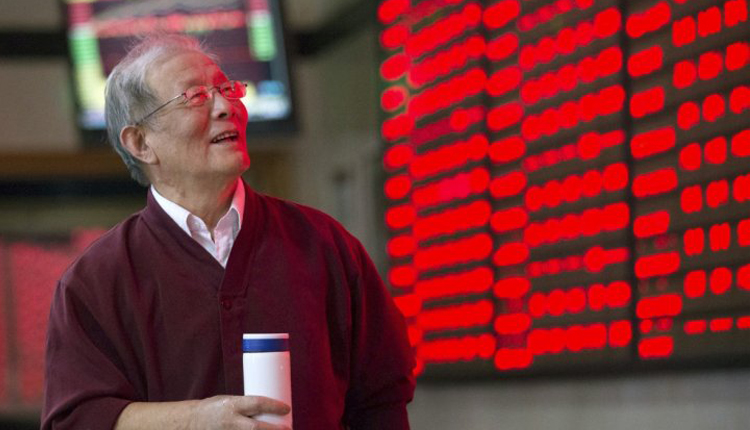Markets in Asia traded mostly lower on Tuesday, with greater China stocks extending their declines as investor worries over Beijing’s trade relations with the U.S. soured sentiment in the region.
China markets pulled back, extending the last session’s sharp declines. The Shanghai composite sank 1.27 percent after touching two-year lows in the last session and the Shenzhen composite pulled back by 1.36 percent.
Hong Kong’s Hang Seng Index plunged 3.08 percent as markets there reopened for trade after a holiday, with the energy and services sectors leading losses. Heavily weighted financials also slumped, with HSBC down 2.79 percent, while technology blue chip Tencent dropped 2.74 percent.
Elsewhere, Japan’s Nikkei 225 turned lower, declining 0.65 percent after earlier retracing some of the sharp declines seen in the overnight session. Airlines and oil producers clung to gains, while most other sectors eased.
In South Korea, the Kospi edged down by 0.37 percent. Manufacturers and technology plays were mixed, with Samsung Electronics gaining 0.99 percent while steelmaker Posco lost 2.06 percent. The S&P/ASX 200, however, bucked the broader trend to rise 0.51 percent.
Meanwhile, MSCI’s index of stocks in Asia Pacific outside of Japan sank 1.22 percent in Asia morning trade.
Investors were cautious as markets continued to watch developments on the trade front. A looming July 6 deadline is set to see the U.S. impose a 25 percent tariff on $34 billion worth of Chinese goods from more than 800 product categories. China has also announced that it will retaliate with duties on the same value of U.S. products.
“While we still think that a full-blown trade war is unlikely, the harsh rhetoric and punitive measures have reached a point that warrants serious consideration of such eventualities,” Tamur Baig, chief economist at DBS Bank, said in a note.
He added that the U.S. would likely be hurt more than China if a trade war ensues, given how China’s retaliation can be on multiple fronts and the U.S. is involved in more than one trade spat.
The U.S. is also engaged in disputes on trade issues with other key trading partners, including Canada and the European Union. The U.S. could face tariffs from the European Union on as much as $300 billion in U.S. goods if the Trump administration proceeds with imposing duties on European cars, the Financial Times reported.
Markets in Europe and Asia closed lower in the previous session amid the concerns over trade, with the pan-European Stoxx 600 declining 0.84 percent. Asian stock indexes saw steeper losses as China markets resumed their slide after getting some reprieve at the end of last week, with the Shanghai composite dropping 2.52 percent on Monday.
Amid the market moves ahead of that July 6 deadline for tariffs, U.S. Commerce Secretary Wilbur Ross told CNBC there was no “bright line level of the stock market” that would change U.S. President Donald Trump’s mind on trade policy.
Those jitters also overshadowed the moderate gains made on Wall Street overnight, with U.S. stocks closing in positive territory after dipping early in the overnight session on trade concerns.
The Dow Jones Industrial Average rose 0.15 percent, or 35.77 points, to close at 24,307.18.
Investor jitters over trade concerns, meanwhile, supported the greenback. The dollar index, which tracks the dollar against a basket of currencies, traded at 94.925 at 11:24 a.m. HK/SIN after rising above the 95 handle in the overnight session. Against the yen, the dollar traded at 110.86.
Ahead, the Reserve Bank of Australia is set to announce its interest rate decision at 12:30 p.m. HK/SIN. Most economists surveyed in a Reuters poll expect the central banks to hold rates until September 2018.
Source: CNBC


